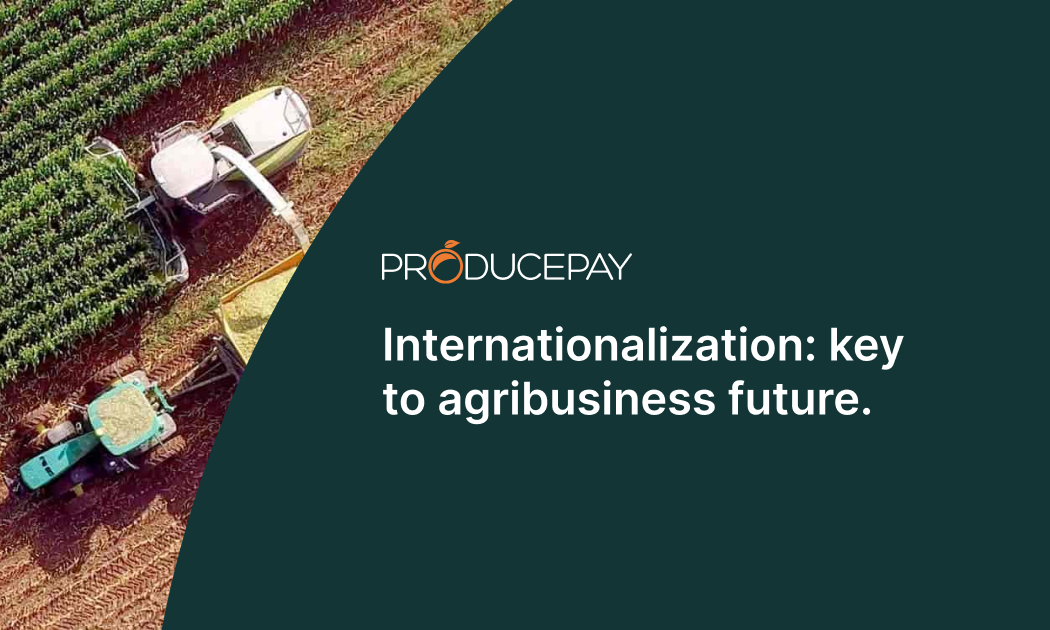
Internationalization: key to agribusiness future.
Internationalization of the food sector is one of the main strategies that companies should adopt in the coming years, as it offers several advantages, however, it is important to understand the current situation and consider multiple relevant factors to achieve it successfully.
Understanding the current situation
We are currently going through a very accelerated transformation of our context, mainly due to globalization and digital revolution; a situation that has been further intensified in recent years as a result of the coronavirus pandemic.
This has led the food sector to face several important challenges that we must take into account, the most important of which are rising prices and inflation, geopolitical conflicts and changes in consumption habits.
The pandemic, conflicts and the consequent increase in prices have strongly affected the entire agricultural industry, so it is important for all agribusinesses to understand this situation at a global level in order to achieve international growth.
On the other hand, in terms of consumption, there is a clear trend among consumers to buy healthier and more sustainable food, with people increasingly questioning the origin of the food they eat, as well as how many resources it costs the earth to produce it.
Benefits of internationalization
Internationalization in the food sector can bring great advantages to any company, such as expanding markets and business opportunities. In this sense, giving your product the opportunity to be marketed abroad is a good opportunity for growth if it is acquired at higher prices, which can represent economic growth for both the company and the growers.
Also, it allows to increase competitiveness, push the company towards modernization and give it a certain resistance to crisis cycles, in addition to the fact that a more global vision in the company’s management reinforces the brand’s image.
Moreover, international food trade contributes to the transformation of food systems, connecting them to each other and helping to make them more sustainable.
Likewise, a redistribution of food production increases the quantity and quality of food across regions, as well as allowing for greater availability and supply of products, which in turn helps to stabilize prices.
How to achieve it and what risks are involved?
For internationalization in the food sector to be successful, many challenges must be overcome. For example, the process of exporting food tends to be complex and often requires specialization in the subject, since it is necessary to deal with tariff or protectionist policies applied by each government.
Furthermore, the fact of being exposed to globalization increases the risk of being affected by any socio-political or economic instability that may occur in any of the areas or regions in which operations are involved. Therefore, to overcome this, it is necessary to have adequate information and to be equipped with people trained in each of these issues.
On the other hand, it is important to understand what the key aspects of trends in consumption and production are, because this will not only affect the way in which food is marketed but will mark a clear line of follow-up for agribusinesses, so that anyone who does not enter in time will eventually lose relevance in the market and among consumers.
Thus, for companies to be successful in an international context, the strategic pillars will be to have a sustainable purpose, to develop an evolutive technological adoption and to learn to constantly differentiate from the rest.
Finally, adaptation will be playing an essential role, since it will give companies a great advantage over their competitors, since those that adapt better and know how to better anticipate the future will be the ones with greater international success.
ProducePay can help you!
As a company, we are committed to technological adoption and global thinking, which is why we have the Marketplace, our buying and selling platform through which you can securely trade fresh produce.
In addition, we understand the importance of staying updated, as it is a practice that can help to better anticipate the future and not be left behind. For this reason, our Daily Market Report and our Blog allow us to keep abreast of the most relevant and current aspects of the produce industry, such as prices, volumes, production and marketing in countries and regions like Mexico, the United States and South America.
Source: Conference by Silvia Hernández Benítez at Expo Agroalimentaria 2022

